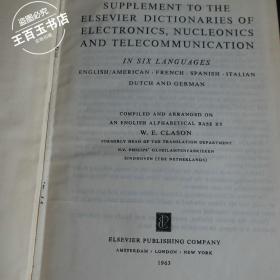随着科技的进步,电子词典日益普及,但传统印刷词典是否会被取代成为了一个热议的话题。电子词典具有便捷性、实时更新等优点,但也存在依赖电力、阅读体验可能不如纸质书籍等缺点。尽管电子词典在特定场合有其优势,但传统印刷词典仍具有不可替代的地位。电子词典与传统印刷词典各有优劣,未来两者将共存发展,电子词典不能完全取代传统印刷词典。
In today's rapidly advancing technological world, the use of electronic dictionaries has become increasingly prevalent. With the evolution of smartphones and tablets, these devices are now equipped with advanced features that provide users with instant access to vast amounts of information. Consequently, this shift has led to a growing concern that electronic dictionaries may replace traditional print dictionaries in the future. However, it is important to examine both sides of this argument to determine whether this shift is indeed inevitable.
On one hand, there are several compelling reasons why electronic dictionaries could potentially replace print dictionaries. Firstly, the convenience factor is a significant advantage that electronic dictionaries offer. With just a few taps on a smartphone or tablet, users can access a wide range of information quickly and easily. Additionally, these devices provide additional features such as voice recognition, translation capabilities, and the ability to store numerous dictionaries simultaneously. This allows users to search for words in different languages effortlessly.
Moreover, electronic dictionaries are also environmentally friendly. The production of print dictionaries requires a significant amount of paper, which contributes to deforestation and environmental degradation. By switching to electronic dictionaries, we can reduce our carbon footprint and contribute to environmental conservation efforts.
On the other hand, there are several reasons why print dictionaries will continue to have a place in society. Firstly, traditional print dictionaries provide an offline experience that cannot be replicated by electronic devices. While the internet is a valuable resource for information, there is still something to be said for the tactile experience of flipping through pages and finding words in a book. This offline experience is particularly valuable for students and language learners who need to focus without distractions.
Moreover, print dictionaries offer a sense of ownership and personalization. People often collect dictionaries as a part of their personal libraries, and these books hold sentimental value. Electronic dictionaries, despite their advanced features, cannot replicate this sense of ownership and personalization.
Furthermore, while electronic dictionaries provide convenient access to information, they also rely on internet connectivity and battery power. In areas where access to reliable internet may be limited or absent, print dictionaries remain a reliable tool for language learners and researchers.
In conclusion, it is evident that electronic dictionaries have made significant advancements and are becoming increasingly popular. However, it is unlikely that they will completely replace print dictionaries in the foreseeable future. Both have their own unique advantages and disadvantages, and it is likely that both will coexist in society. Electronic dictionaries offer convenience and advanced features, while print dictionaries provide an offline experience, sense of ownership, and are more reliable in areas without internet connectivity. Therefore, it is important to utilize both types of dictionaries depending on the situation and needs.




 京公网安备11000000000001号
京公网安备11000000000001号 京ICP备11000001号
京ICP备11000001号
还没有评论,来说两句吧...